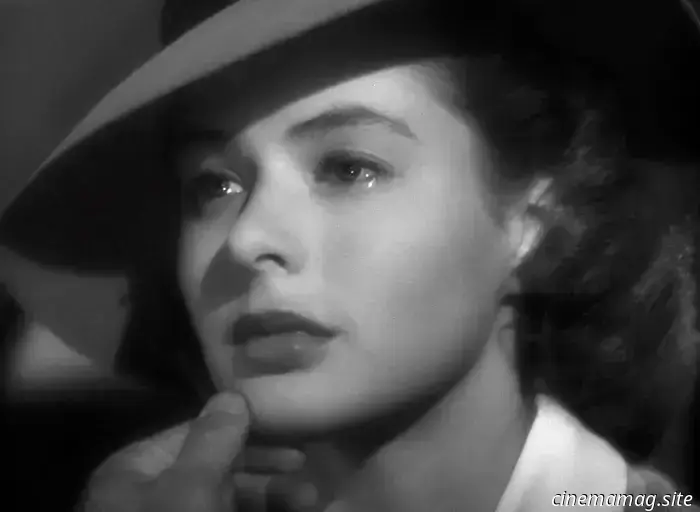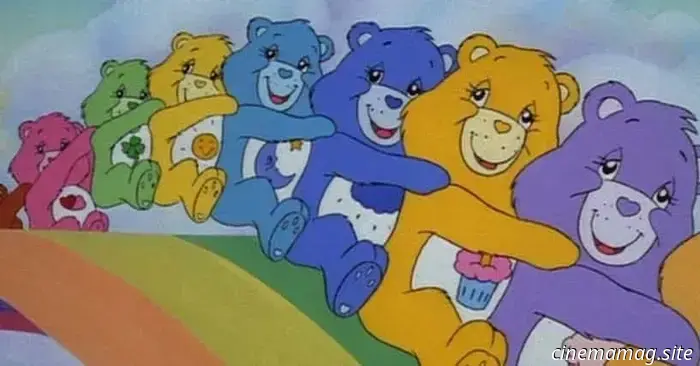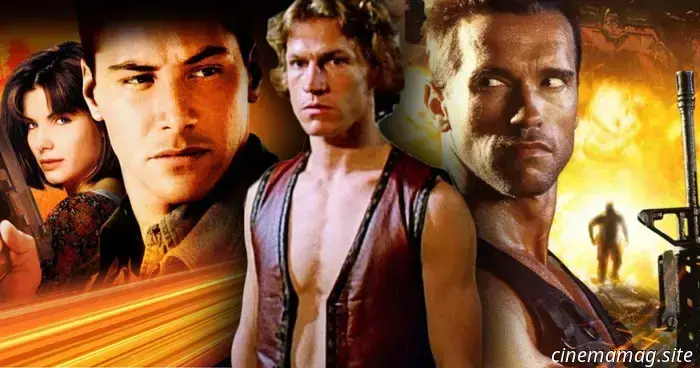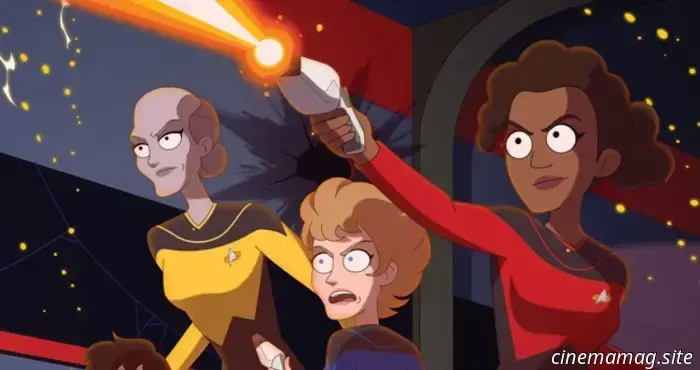
10 Black and White Films That Seem Remarkably Contemporary
These black and white films continue to resonate in our vibrant era.
**Notorious (1946)**
RKO Radio Pictures – Credit: C/O
Many people argue that complex, imperfect heroines are a contemporary invention of our newly enlightened society.
We would point them to Alfred Hitchcock’s electrifying Notorious, which centers on whether Alicia Huberman (Ingrid Bergman) will attempt to redeem her tarnished reputation for U.S. agent T.R. Devlin (Cary Grant).
Throughout the film, Hitchcock plays with female stereotypes and themes of virtue, leaving us uncertain about Alicia’s true intentions and loyalties right until the very end. There’s a meta-narrative about Hitchcock’s and the film's beliefs, keeping us engaged as we hope that Hitchcock from nearly 80 years ago won’t disappoint us.
It remains a thriller in every aspect.
**The Apartment (1960)**
United Artists – Credit: C/O
Anora director Sean Baker rightly earns acclaim for his sharp and humorously honest films addressing the commercialization of sex. However, The Apartment set the standard.
Billy Wilder's masterpiece has a very grim premise: young clerk Bud (Jack Lemmon) lends out his apartment to executives for secret meetings with vulnerable women. Even worse, he’s expected to ignore how this arrangement impacts the stoic Fran (Shirley MacLaine).
Similar to Baker’s works, sexual transactions can be viewed as a metaphor for broader exploitation. It’s incredibly satisfying to witness Fran and Bud assert themselves.
**Psycho (1960)**
Paramount Pictures
Psycho will eliminate any notions that older films are boring and outdated.
From the outset, Janet Leigh’s Marion Crane is a good girl gone astray, embezzling from her inebriated boss to escape across the Arizona desert to her irresponsible boyfriend. The suspense is palpable even before she encounters the titular psycho.
Although the ending reveals may disappoint, keep in mind that Psycho was released at a time when most people were unfamiliar with the concept of a psycho. The film ensured they wouldn't forget.
**All About Eve (1950)**
20th Century Fox – Credit: C/O
Bette Davis portrays a Broadway star unwilling to relinquish the spotlight, while Anne Baxter is Eve Harrington, a cunning manipulator eager to take her place.
This dynamic has played out countless times since, from The Devil Wears Prada to Showgirls, but none have done it quite as well as All About Eve.
It also features an early appearance by Marilyn Monroe. And consider how remarkable it is that the line, “Fasten your seat belts, it’s going to be a bumpy night!” emerged just a few years after commercial air travel took off.
**Casablanca (1942)**
Warner Bros. – Credit: C/O
Casablanca explores themes of conflicting loyalties and profound morality—it's truly a film for adults navigating a complex world and for children striving to uphold their ideals.
Remarkably, it feels quicker than many contemporary streaming shows and films.
It’s hard to find a film more quotable. Our favorite line—“I’m shocked, shocked”—remains as humorous as it was in 1942 and comes to mind with every new controversy that lights up our screens.
**Double Indemnity (1944)**
Paramount Pictures – Credit: C/O
This is arguably the most entertaining film ever made about insurance, with noir elements that leap off the screen, particularly in the anklet scene—aka the “how fast was I going” moment—between Fred MacMurray as an insurance man and Barbara Stanwyck as a scheming client.
The scene's vibrancy emerges as Stanwyck’s Phyllis repeatedly reminds MacMurray’s Walter of her marital status while he tries to regain control with a sizzling exit line. It’s a flawless setup for forbidden romance.
**The Postman Always Rings Twice (1944)**
MGM – Credit: C/O
If you ever yearn for a more innocent past, watching The Postman Always Rings Twice will remind you that those days weren’t as innocent as they seemed.
There’s much to love about this movie—John Garfield’s charming drifter, Lana Turner’s beautiful but devious Cora, and the diner backdrop—but what stands out most is its grounded, unsentimental nature.
It seems like Lana Del Rey drew more than just her first name from Lana Turner; many of her contemporary anthems reflect the noir influences of the 1940s, and regardless of whether her young fans are aware of her inspirations, her success shows that the allure of the dark noir aesthetic persists.
**It’s a Wonderful Life (1946)**
RKO Radio Pictures – Credit: C/O
If you think of this film as just another sentimental holiday classic, you're not remembering it correctly.
This Frank Capra black and











Other articles
-Movie-Review.jpg) Echo Valley (2025) - Film Review
Echo Valley, 2025. Directed by Michael Pearce. Featuring Julianne Moore, Sydney Sweeney, Domhnall Gleeson, Kyle MacLachlan, Fiona Shaw, Edmund Donovan, Rebecca Creskoff, Audrey Grace Marshall, and Stella Chivee. SUMMARY: While managing her horse training business in the serene and remote Echo Valley, Kate is coping with a personal loss when her daughter, Claire, comes back to […]
Echo Valley (2025) - Film Review
Echo Valley, 2025. Directed by Michael Pearce. Featuring Julianne Moore, Sydney Sweeney, Domhnall Gleeson, Kyle MacLachlan, Fiona Shaw, Edmund Donovan, Rebecca Creskoff, Audrey Grace Marshall, and Stella Chivee. SUMMARY: While managing her horse training business in the serene and remote Echo Valley, Kate is coping with a personal loss when her daughter, Claire, comes back to […]
 Care Bears make their comeback on the big screen in a new film directed by Josh Greenbaum.
The Care Bears are making a comeback! According to Deadline, director Josh Greenbaum (known for Barb and Star Go to Vista Del Mar and Strays) will lead a fresh interpretation of the beloved children's franchise. The Care Bears were first introduced in 1981 by artist Elena Kucharik, designed as multi-colored bears for greeting cards by American Greetings, and later evolved into […]
Care Bears make their comeback on the big screen in a new film directed by Josh Greenbaum.
The Care Bears are making a comeback! According to Deadline, director Josh Greenbaum (known for Barb and Star Go to Vista Del Mar and Strays) will lead a fresh interpretation of the beloved children's franchise. The Care Bears were first introduced in 1981 by artist Elena Kucharik, designed as multi-colored bears for greeting cards by American Greetings, and later evolved into […]
 Hasbro has unveiled the Psylocke vs. Thanos Marvel Legends Series Gamerverse 2-pack.
Hot on the heels of the official announcement of Wolverine vs. Silver Samurai, Hasbro has introduced another figure in its latest Marvel Legends Series Gamerverse line inspired by the classic Marvel vs Capcom 2. The new Psylocke vs. Thanos 2-pack is currently available for pre-order exclusively at Target.
Hasbro has unveiled the Psylocke vs. Thanos Marvel Legends Series Gamerverse 2-pack.
Hot on the heels of the official announcement of Wolverine vs. Silver Samurai, Hasbro has introduced another figure in its latest Marvel Legends Series Gamerverse line inspired by the classic Marvel vs Capcom 2. The new Psylocke vs. Thanos 2-pack is currently available for pre-order exclusively at Target.
 Incredibly Simple Yet Exhilarating Films
Sometimes, simpler is better! Take a look at these incredibly exciting movies that have wonderfully straightforward ideas… One of the best aspects of cinema is its ability to cater to all tastes. Looking for action? It's available. In the mood for comedy? We have that too. Fans of Rob Schneider films? To each their own. Numerous films by Christopher Nolan have left audiences puzzled and confused with […]
Incredibly Simple Yet Exhilarating Films
Sometimes, simpler is better! Take a look at these incredibly exciting movies that have wonderfully straightforward ideas… One of the best aspects of cinema is its ability to cater to all tastes. Looking for action? It's available. In the mood for comedy? We have that too. Fans of Rob Schneider films? To each their own. Numerous films by Christopher Nolan have left audiences puzzled and confused with […]
 The anime series "Nyaight of the Living Cat" by Takashi Miike has released a new trailer.
With only a month left until Night of the Living Cat premieres on Crunchyroll, a new trailer for the anticipated anime series has been released online. Directed by Takashi Miike and Tomohiro Kamitani, and inspired by the manga of the same name by Hawkman and Mecha-Roots, the series depicts a virus that transforms humans into cats after coming…
The anime series "Nyaight of the Living Cat" by Takashi Miike has released a new trailer.
With only a month left until Night of the Living Cat premieres on Crunchyroll, a new trailer for the anticipated anime series has been released online. Directed by Takashi Miike and Tomohiro Kamitani, and inspired by the manga of the same name by Hawkman and Mecha-Roots, the series depicts a virus that transforms humans into cats after coming…
 Star Trek: Lower Decks #8 - Preview of the Comic Book
IDW Publishing is set to release Star Trek: Lower Decks #8 on Wednesday, and you can check out an official preview of the issue below. In a touching moment of bonding between mother and daughter, Captain Freeman shares her story about once being a nobody screw-up, much like Mariner! Picking up from where she last stopped, Dr. Katherine [...]
Star Trek: Lower Decks #8 - Preview of the Comic Book
IDW Publishing is set to release Star Trek: Lower Decks #8 on Wednesday, and you can check out an official preview of the issue below. In a touching moment of bonding between mother and daughter, Captain Freeman shares her story about once being a nobody screw-up, much like Mariner! Picking up from where she last stopped, Dr. Katherine [...]
10 Black and White Films That Seem Remarkably Contemporary
These black and white films continue to resonate strongly in our vibrant era.
